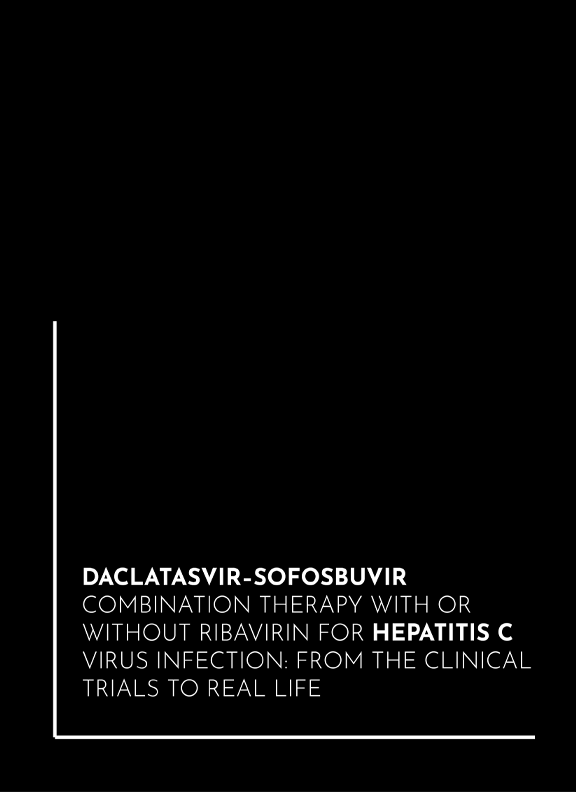
Direct-acting antiviral agents (DAAs) have revolutionized the treatment of hepatitis C virus (HCV) infection over the last 5 years. As a result of our better understanding of the HCV life cycle, specific DAAs have been developed for HCV that are able to target the viral proteins implicated in replication of the virus, ie. the NS3/4A protease, NS5B polymerase, and multifunctional NS5A replication complex.
The first-generation protease inhibitors significantly improved the sustained virologic response (SVR) in genotype 1-infected patients, but at the cost of increased side effects, a complex pattern of drug–drug interactions, and viral resistance. In addition, the first-generation drugs still required the use of PEGylated interferon (PEG-IFN) for 24–48 weeks. Oral IFN-free combinations containing at least two DAAs enabled less complex dosing, tolerable side effects, and fewer drug–drug interactions. This review summarizes the key safety and efficacy data from clinical studies concerning the combination of sofosbuvir, daclatasvir, with or without ribavirin in the treatment of HCV.




